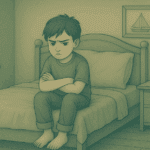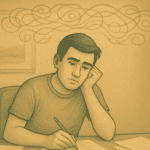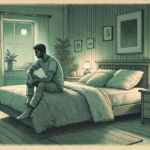Key Takeaways
- Yes, depression can lead to delusions, especially in severe cases. Known as psychotic depression, this involves fixed, false beliefs tied to deep emotional pain, like believing one is terminally ill, unforgivably guilty, or deserving of punishment.
- Psychotic depression affects up to 20% of hospitalized cases and is especially common in older adults, but often goes undiagnosed due to fear, stigma, or missed screening.
- It distorts both thoughts and physical sensations, with symptoms like imagined illness, nihilistic beliefs, appetite loss, sleep issues, slowed movement, or unexplained pain.
- Risk factors include a family history of mood or psychotic disorders, traumatic events, substance use, and certain medications.
- AMFM provides tailored residential, partial hospitalization, and intensive outpatient programs for complex depression, with compassionate, evidence-based treatment in peaceful, supportive environments.
The Connection Between Depression and Delusions
Yes, depression can make you delusional! In more severe cases, it can lead to a condition known as psychotic depression. These delusions are often missed or misunderstood because they tend to reflect the person’s deep emotional pain, not random or bizarre ideas. Instead of mild negative thinking, these beliefs are fixed and disconnected from reality. People may believe they’ve ruined everything or deserve punishment. The more intense the depression becomes, the easier it is for these thoughts to take hold. And as delusions grow stronger, they often deepen the depression, creating a difficult cycle that needs clinical attention to break.
What Is Psychotic Depression?
Psychotic depression is a serious form of major depressive disorder where symptoms like hallucinations or delusions appear alongside low mood. These delusions tend to follow the same emotional tone as the depression, usually focusing on failure, illness, or punishment. Because of how intense and disruptive it becomes, this type of depression often calls for a mix of medications and more hands-on treatment. Left untreated, it can severely impair daily functioning and raise the risk of self-harm.
How Common Is Depression With Delusional Features?
Psychotic depression affects more people than expected. Around 14–20% of hospitalized depression cases involve delusions. It’s especially common in older adults, where nearly half may experience these symptoms. Many never speak up due to fear or confusion, and healthcare providers don’t always screen for them. The chances of experiencing this form of depression increase with a history of mood disorders in the family, or if it has happened before.
Founded in 2010, A Mission For Michael (AMFM) offers specialized mental health care across California, Minnesota, and Virginia. Our accredited facilities provide residential and outpatient programs, utilizing evidence-based therapies such as CBT, DBT, and EMDR.
Our dedicated team of licensed professionals ensures every client receives the best care possible, supported by accreditation from The Joint Commission. We are committed to safety and personalized treatment plans.
Signs Your Depression Has Delusional Features
Common Types of Depression-Related Delusions
Delusions in depression usually mirror the same negative patterns already present, but taken to extremes. Guilt is one of the most common themes. Someone may truly believe they’ve caused great harm or deserve punishment for things that aren’t their fault. Nihilistic beliefs can also appear, such as feeling like the world has ended or thinking their body is rotting away. Others become convinced they’re broke despite having money, or misread harmless events as personal threats. These thoughts aren’t just pessimism; they’re fixed and disconnected from reality.
Physical Symptoms That Accompany Delusional Depression
Delusional depression often comes with more intense physical changes. Movement may slow dramatically, or the person may become restless and unable to sit still. Sleep is usually disturbed, either too little or too much, but never restful. Appetite may vanish, leading to weight loss, and some people stop eating because they believe they don’t deserve food. Even everyday aches or discomforts get twisted into proof of imagined illness, locking them deeper into their delusions.
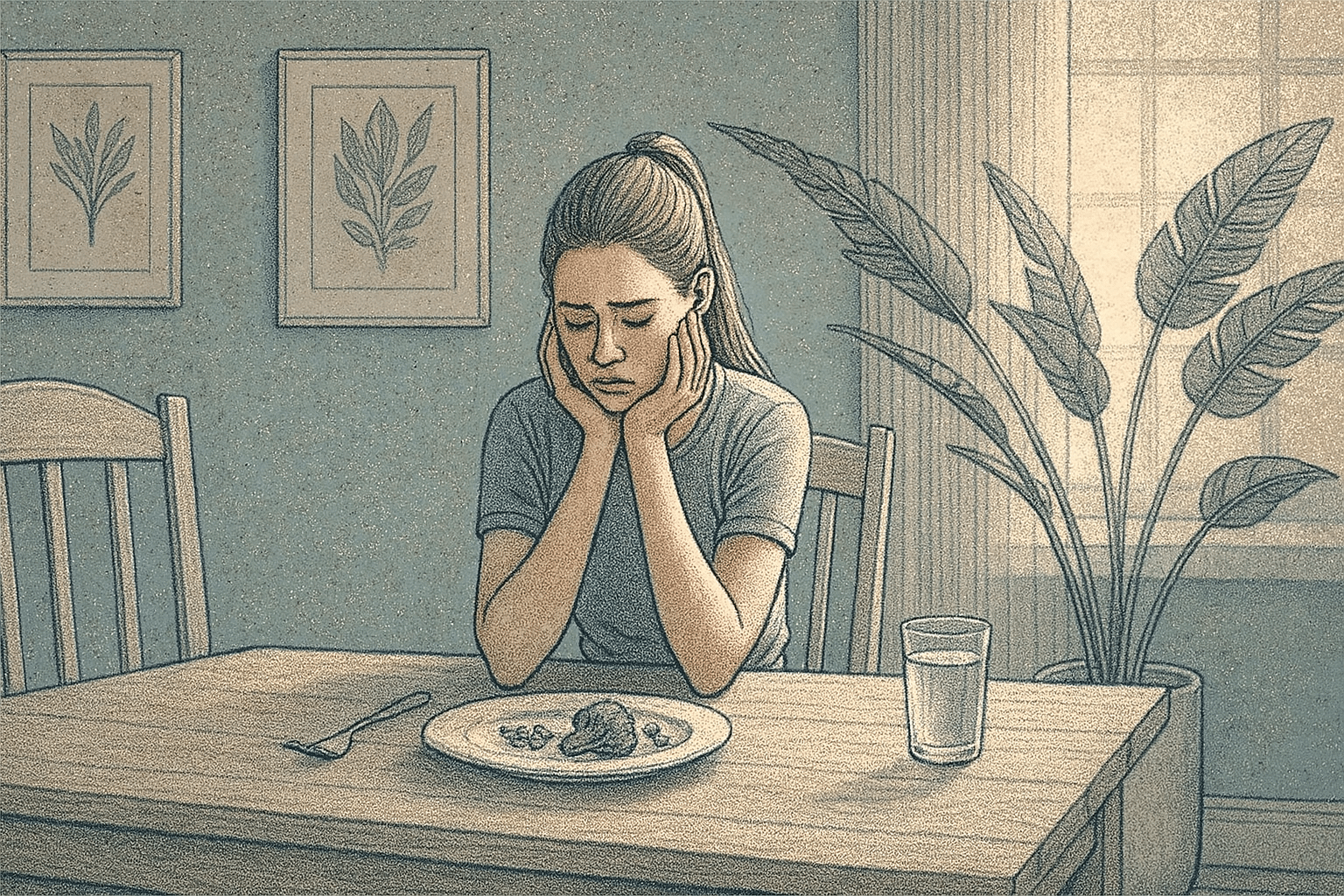
Delusional depression can make even basic needs like eating feel impossible.
Physical Illness Delusions
A particularly common form of depression-related delusion centers on physical health. Despite medical tests showing no abnormalities, individuals with delusional depression may become absolutely convinced they have terminal cancer, a degenerative disease, or some rare, incurable condition. These somatic delusions can be so powerful that the person experiences genuine physical symptoms like pain, weakness, or sensations of internal decay that align with their false beliefs.
Risk Factors for Developing Delusional Depression
Family History and Genetic Predisposition
Genetics can raise the risk for delusional depression, especially if a close family member has struggled with similar conditions like bipolar disorder with psychosis or schizophrenia. Certain gene variations can affect how the brain handles mood-related chemicals, increasing vulnerability. This doesn’t mean someone will develop the condition, but it can heighten sensitivity to stress or other triggers.
Stressful Life Events as Triggers
Major life changes, like a death, breakup, illness, or financial collapse, can act as tipping points. For those already prone to depression, these events may intensify symptoms to the point where psychosis develops. The brain becomes overwhelmed, and reality starts to distort.
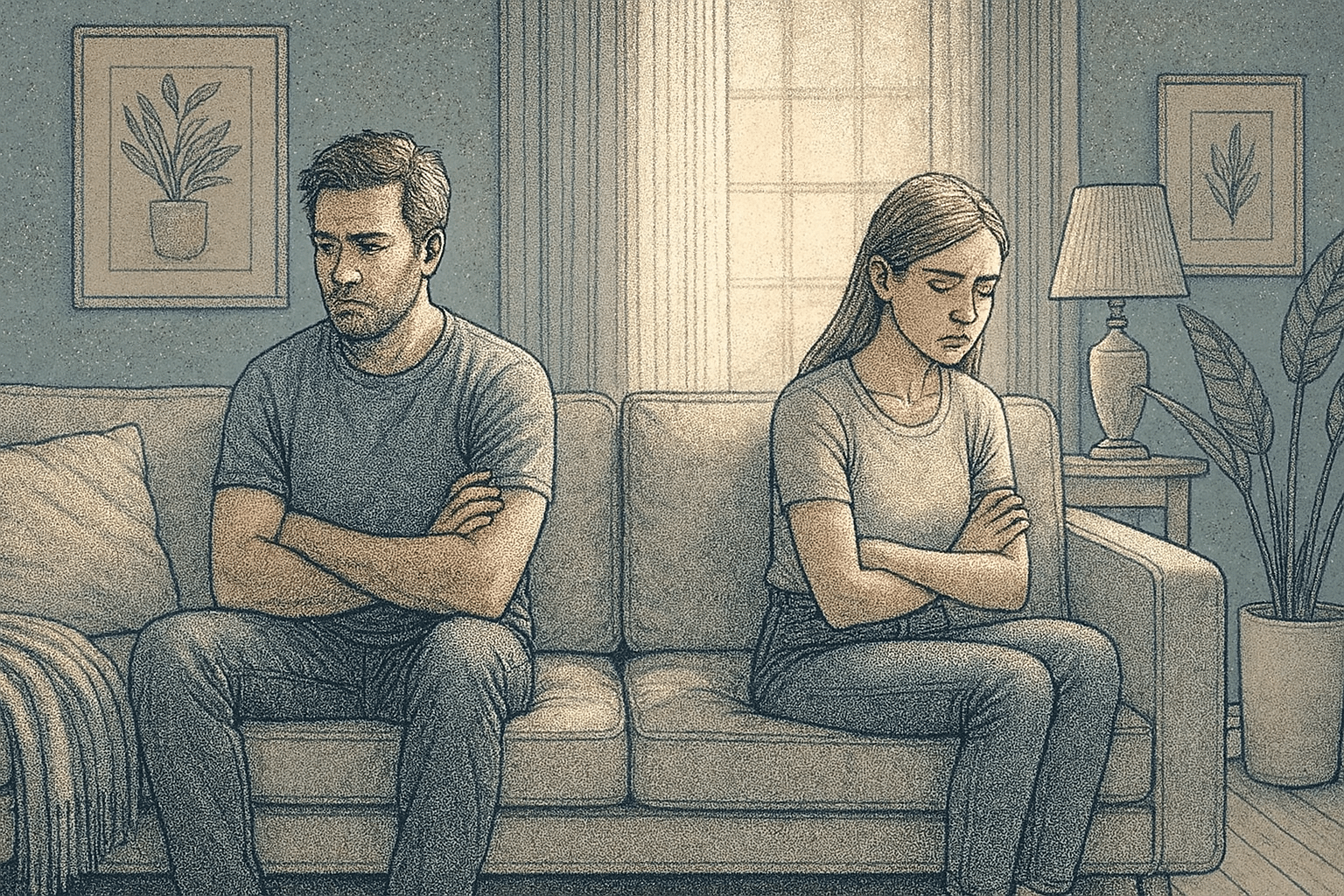
Major life stressors like relationship breakdowns or financial collapse can push someone already struggling with depression past their breaking point, where an overwhelmed brain starts distorting reality.
Substance Use and Medication Interactions
Some drugs and stimulants can make things worse. Heavy alcohol use, marijuana, or substances like amphetamines may increase the risk of psychotic symptoms in those already dealing with depression. Even certain prescription or over-the-counter meds can cause problems if they affect brain chemistry. Check with a doctor if symptoms suddenly worsen during or after medication use.
Recovery Timeline and Expectations
Recovery from delusional depression typically follows a different timeline than standard depression. Most patients see a reduction in acute psychotic symptoms within 2–6 weeks of starting appropriate treatment, though complete resolution may take longer. The depressive symptoms often improve more gradually, with significant relief occurring over 8–12 weeks of consistent treatment.
Why Choose AMFM? Your Partner in Hope, Healing, and Lasting Wellness

AMFM’s serene residential facilities are thoughtfully designed to support healing in a comfortable, home-like environment.
Severe depression, especially when delusions are involved, can feel like too much to carry alone. At AMFM, we understand that kind of weight, and we’re here to help lift it. Our goal is to offer deeply compassionate, science-backed care that’s designed for what you need, not what a textbook says should work. Every recovery story is personal, and we treat it that way.
Our clinical team is made up of experienced professionals who know how to work with complex conditions like bipolar disorder, PTSD, anxiety, and schizophrenia. We take time to build a personalized treatment plan around your unique symptoms and history, especially when delusions are part of what you’re facing.
Depending on your needs, your care might take place in a peaceful residential setting, in a more flexible outpatient program, or in our partial hospitalization option that balances structure and independence. Wherever you are in your journey, we’re equipped to meet you there. And we’re not limited to talk therapy; we bring in music, yoga, equine therapy, creative writing, and other whole-body approaches that can support mental wellness in powerful ways.
From the moment you reach out, we’ll walk with you step by step. We make insurance verification simple, and we’re in-network with most major plans, so in many cases, treatment could be fully covered after your deductible. We also accept private pay, and we’re happy to help clarify what options make the most sense for you.
Our facilities across California, Virginia, and Washington are designed to feel calm, welcoming, and safe. Healing happens best when you feel supported by both your care team and the space around you. That’s why we’ve created environments with chef-prepared meals, cozy communal areas, and opportunities to connect with others in meaningful ways.
Even after you leave, we’re still in your corner. We provide medication management, family therapy, relapse prevention planning, and coaching for life beyond treatment. Recovery is a process, and you don’t have to face it alone.
If you’re ready to take the first step, we’re ready to meet you. Call 866-478-4383 or visit our site to check your coverage and start a recovery plan that’s built around you.
Frequently Asked Questions (FAQ)
Can depression cause hallucinations as well as delusions?
Yes, though less common than delusions, hallucinations can occur in severe depression. Most often, these are voices that reinforce hopelessness or guilt. Some people hear critical or punishing remarks, while others may feel sensations like bugs crawling on their skin. These experiences typically reflect the person’s depressive mindset and tend to fade with proper treatment.
How is delusional depression different from bipolar disorder with psychotic features?
It depends on when the psychotic symptoms show up. In delusional depression, they only happen during depressive episodes. In bipolar disorder, psychosis can appear during both depressive and manic phases. Mania-linked delusions often involve grand ideas, not guilt or failure. That difference matters for treatment, since bipolar disorder requires mood stabilizers alongside other meds.
Can children and teenagers experience delusional depression?
Yes, though it’s less common. In young people, delusional thinking may look more like intense fear or odd beliefs rather than clearly false ideas. They might also have more visual hallucinations, poor school performance, and withdraw socially. Since symptoms can be mistaken for normal mood swings, it’s important to seek evaluation if the depression becomes severe and includes strange beliefs or behaviors.
Will someone with delusional depression know their thoughts aren’t real?
Usually not. The beliefs feel completely true in the moment, and logic rarely breaks through. As treatment starts to work, insight can develop slowly. Some people even go through a phase where they know a belief was false but still feel attached to it emotionally. Others might have “double awareness,” recognizing the belief seems irrational yet still feeling it’s real.
Does insurance cover treatment at AMFM?
AMFM is in-network with many major insurance providers and works with most PPO plans, which may cover up to 100% of treatment costs after deductibles. We offer assistance with insurance and private pay options to make high-quality care accessible.








